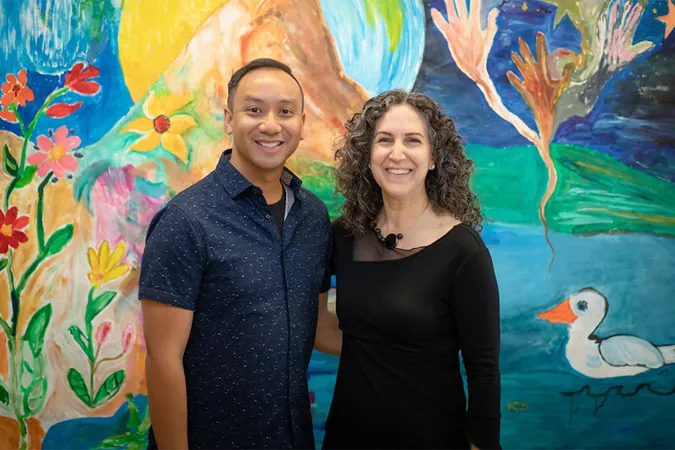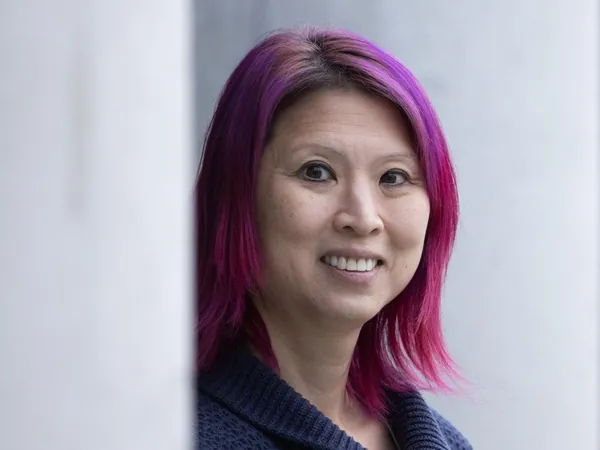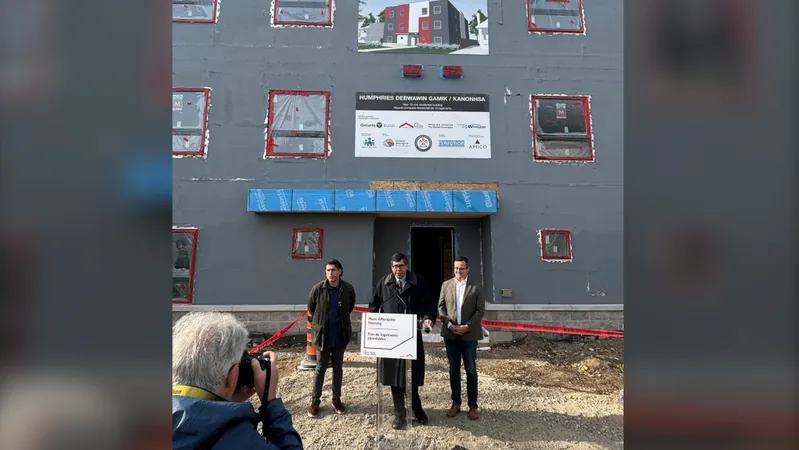
The Transformative Power of Art in Dementia Care
2024-11-22
Author: Noah
Introduction
In a poignant journey that began in her childhood, Dr. Pia Kontos found herself deeply influenced by her interactions with her great-grandmother, who lived with dementia in a long-term care facility. As a young girl, she observed how the staff often overlooked the essence of her great-grandmother’s identity, treating her in a way that felt dismissive. In stark contrast, young Dr. Kontos sensed that beneath the cognitive changes, her great-grandmother was still present and deserving of acknowledgement.
Professional Journey
Fast forward to today, Dr. Kontos serves as a Senior Scientist at UHN’s KITE Research Institute, where she has devoted her career to reshaping the narrative around dementia care. Her childhood experience ignited a passionate commitment to combat the stigma and social exclusion faced by individuals grappling with dementia.
“I always felt badly for her and that there was so much more that could have been done to support her,” Dr. Kontos recalls. Her emotional journey led her to explore the deeper aspects of identity and self-expression in those with cognitive impairments.
Innovative Approach
Dr. Kontos's innovative work intersects dementia care with the arts, focusing on two primary areas: advocacy and activism. She utilizes unconventional methodologies to transform attitudes toward dementia care, illustrating that the essence of individuals continues to thrive even amidst significant cognitive decline.
Research Insights
In her research within various care facilities, Dr. Kontos has discovered rich, meaningful expressions that she terms “embodied selfhood.” This concept embraces the idea that one’s sense of identity can still be conveyed through non-verbal means, despite challenges in communication. Unfortunately, many caregivers often overlook this potential, dismissing it as lost due to cognitive difficulties.
Show Rather Than Tell
To combat this pervasive assumption, Dr. Kontos employs a “show rather than tell” strategy. She developed a series of research-based theatrical vignettes that capture real-life moments where individuals with dementia communicate their feelings and identities in subtle yet powerful ways. These performances act as a mirror, allowing family members and professional caregivers to “see” the often-overlooked richness of life and expression within dementia care.
Impact and Future Directions
The profound impact of her initiatives is palpable, drawing audiences into a narrative that extends beyond mere diagnosis, revealing the vibrant lives that continue within those living with dementia. Dr. Kontos underscores the potential for transformative change, advocating that when individuals are supported appropriately, the possibilities for living well with dementia are not only possible but abundant.
Conclusion
The intersection of art and dementia care is an arena ripe for exploration, and Dr. Kontos's work serves as an inspiring model for how creativity can be harnessed to challenge stereotypes, foster empathy, and enhance the quality of life for individuals facing cognitive decline. This revolutionary approach not only reshapes healthcare practices but also elevates the voices and identities of those often silenced by stigma. As society continues to learn from these valuable insights, the future of dementia care looks more hopeful and inclusive than ever.









 Brasil (PT)
Brasil (PT)
 Canada (EN)
Canada (EN)
 Chile (ES)
Chile (ES)
 España (ES)
España (ES)
 France (FR)
France (FR)
 Hong Kong (EN)
Hong Kong (EN)
 Italia (IT)
Italia (IT)
 日本 (JA)
日本 (JA)
 Magyarország (HU)
Magyarország (HU)
 Norge (NO)
Norge (NO)
 Polska (PL)
Polska (PL)
 Schweiz (DE)
Schweiz (DE)
 Singapore (EN)
Singapore (EN)
 Sverige (SV)
Sverige (SV)
 Suomi (FI)
Suomi (FI)
 Türkiye (TR)
Türkiye (TR)